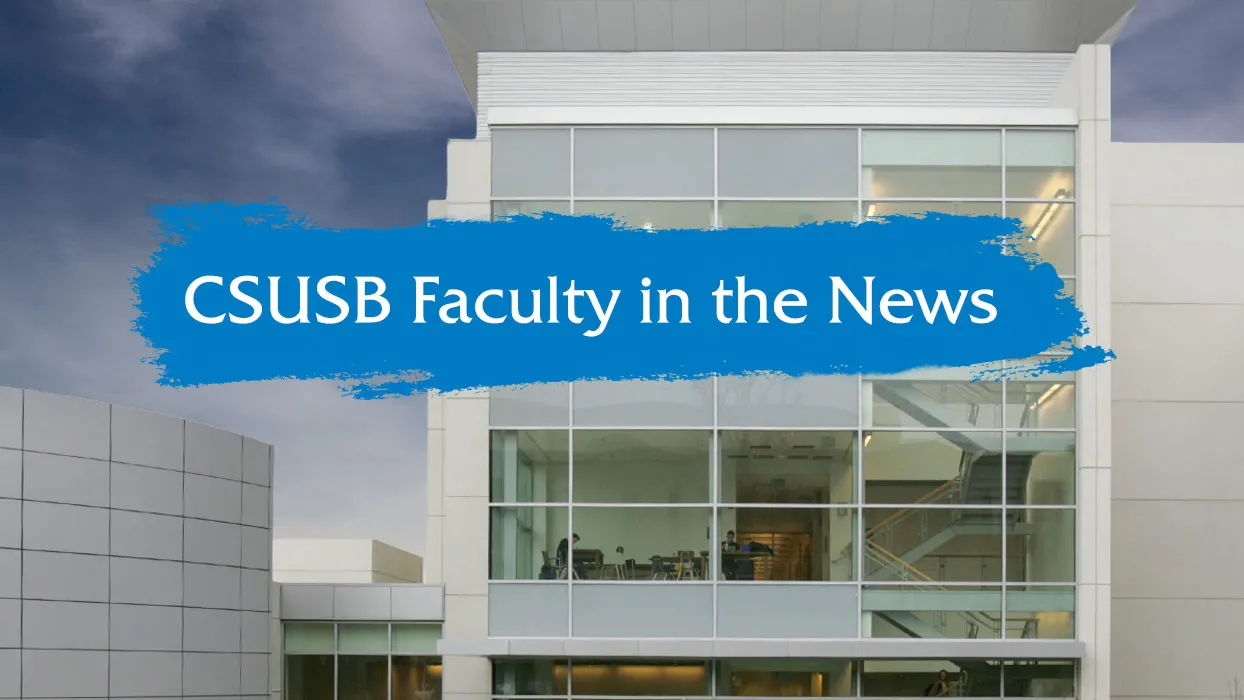NOTE: Faculty, if you are interviewed and quoted by news media, or if your work has been cited, and you have an online link to the article or video, please let us know. Contact us at news@csusb.edu.
Naming of an early mammal relative acknowledges work of paleontologist, CSUSB professor saysTrib Live (Pittsburgh, Pa.)
Jan. 25, 2022
A new fossil species of an early mammal relative has been named for the man who helped discover its location, David S Berman, paleontologist and former curator of vertebrate paleontology at Pittsburgh’s Carnegie Museum of Natural History. The fossil, Shashajaiabermani, is from a bone bed co-discovered by Berman in 1989, in what is now Bears Ears National Monument in Utah.
The research team that discovered and described Shashajaiabermani “wanted to acknowledge Dave’s seminal work both on animals from this group, as well as on animals from around the world of similar age,” said Stuart Sumida, a biology professor at California State University, San Bernardino.
Read the complete article at “Fossil of early mammal relative named for longtime Carnegie Museum of Natural History paleontologist.”
CSUSB professor offers advice on choosing comprehensive car insurance
WalletHub
Jan. 25, 2022
James Estes, CSUSB professor of finance, was interviewed by the consumer finance website about what to look for when considering purchasing a comprehensive car insurance policy.
“There are no clear-cut rules, and it is an individual decision, location, chance of total loss (fire, theft, wind) that must impact that decision,” Estes said. “Remember, it is not a collision, but everything else that you are covering.
Read the complete article at “Ask the experts.”
CSUSB professor looks back at U.S. Capitol riot one year later
KSFR (Santa Fe, N.M.)
Jan. 24, 2022
“It's been a year and then some since marauders, egged on by that rotten deviled egg Donald Trump, attacked the U.S. Capitol,” the podcast summary for “Here and There with Dave Marsh” says. “There have charges and arrests and investigations on the law side, but Brian Levin of Cal State San Bernardino says hate and sedition on the lawless side have only grown.”
Listen to the interview at “Here And There 24 January, 2022 Brian Levin.”
Growing threats against local government and community leaders a concern, CSUSB professor says
The Sacramento Bee
Jan. 25, 2022
A group that made threatening statements as it marched to the home of an El Dorado elementary school principal over mask mandates for students is part of a growing problem that could escalate during the mid-term elections. The Sacramento Bee has extensively reported on the changing nature of extremism and the renewed interest in taking over local governments. Experts warn these increasingly hostile activists pose a serious threat. Some might escalate their protests and take on individual leaders, especially if they think they have the backing of a credible movement behind them.
“What we’re seeing is an amalgam of villains and hot-button issues, which get ramped up on television and online, resulting in this kind of garbage,” said Brian Levin, director of the Center for the Study of Hate and Extremism at California State University, San Bernardino.
In an election year likely to prompt even more extreme reactions, and with lawmakers pushing stricter vaccine mandates for children, Levin said elected officials should consider enacting legal restrictions on picketing in front of a person’s private residence.
There’s Supreme Court precedent for it, he said, referring to a 1988 decision that upheld a municipality’s ban on anti-abortion demonstrators who protested outside a doctor’s home.
“In the past, there were a different set of villains,” Levin said. “But now there are our local election certifiers, school principals and public health officials who are facing this kind of ire at the local level. And it’s got to be dealt with.”
Read the complete article at “Sacramento-area anti-mask conspiracists target elementary school principal at his home.”
These news clips and others may be viewed at “In the Headlines.”
